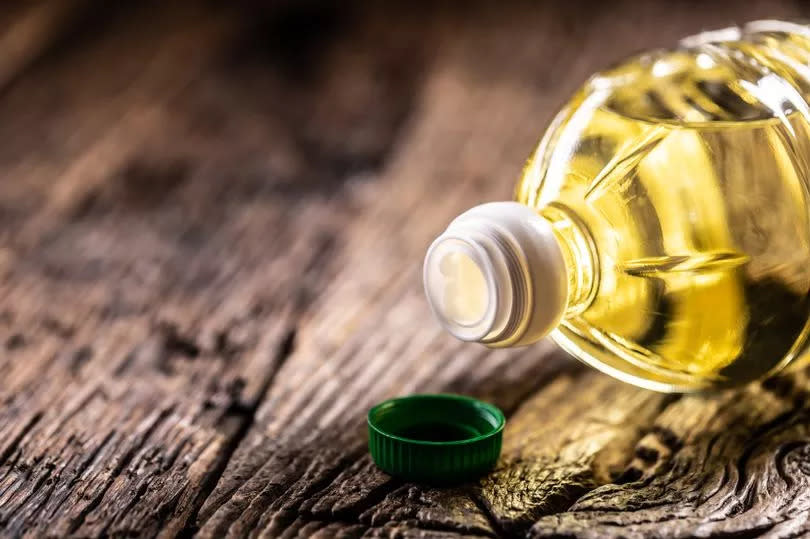Supermarket shoppers hit out over 'eye-watering' olive oil prices as cost soars by 89%

Shoppers have been taken aback after seeing the latest price tag of a kitchen cupboard staple that has close to doubled in cost over the past year.
According to recent figures from the Office for National Statistics (ONS), the average price of a bottle of olive oil has increased by a staggering 89% - meaning the cheapest option is now nearly £8 in major UK supermarkets. This is due to difficult weather conditions impacting olive groves in the Mediterranean, with the region experiencing its hottest summer on record in 2023.
It comes after a photo shared to social media earlier this week showing olive oil options for sale in a Tesco store went viral, showing prices as high as £13 per bottle. Over in Spain, the oil has become so expensive that Spanish supermarkets have been forced to lock up their bottles or place security tags on them in a bid to prevent shoplifting, BirminghamLive reports.
READ MORE: Greggs to open extra six cheaper outlet stores across the UK this year
Get all the latest money news and budgeting tips from Chronicle Live with our free newsletter
In response to the ONS findings, a Tesco spokesperson added: "Our own-brand olive oil starts at £3.30." However, this price refers to a 250ml bottle of olive oil, which works out at £1.32 per 100ml.
At Tesco, the cheapest bottle going off cost per 100ml is the one litre bottle of the supermarket's own-brand olive oil, which has a price tag of £7.80 (78p per 100ml). Sainsbury's own-brand olive oil also costs £7.80 for a one litre bottle, as do Asda's and Morrisons' comparable options, while for an Extra Virgin bottle the price rises to £8.40 at all of the big four supermarkets.
Earlier this month, Tesco said price pressures have eased "substantially" as the supermarket giant revealed a jump in profits, although it was still seeing "sticky" inflation on popular items such as chocolate, potatoes and coffee. The retailer posted an adjusted operating profit of £2.83 billion for the year to February, up almost 13% on the previous year.
Elsewhere at the supermarkets, latest data from the ONS showed that annual food price inflation fell to its lowest level for two years in February, with a growing number of household items seeing prices fall compared with the same time last year. There have been sharp slowdowns in the average price of eggs, which rose by 3.2% in the year to February compared with a jump of 7.2% in the year to January; crisps (up by 6.2% in February compared with 10.8% in January); yoghurt (up 6.5% compared with 9.9%); tea (up 7.2% compared with 10.6%) and pizza and quiche (up one per cent compared with four per cent).
A number of products are now recording negative inflation – in other words, prices are falling year-on-year, the ONS found. The average cost of whole milk was down 10.2% in the year to February, a slightly larger fall than the drop of 10% in January, while butter was down 7.6% and cheese fell in price by 0.3%.

 Yahoo News
Yahoo News 
